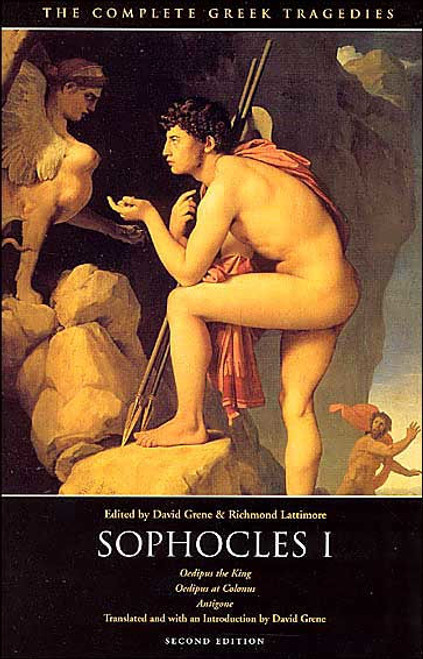Among the most influential books in Western civilization, Aristotle's Poetics is really a treatise on fine art. In it are mentioned not only epic and dithyrambic poetry, but tragedy, comedy, and flute and lyre playing. Aristotle's conception of tragedy, i.e. the depiction of a heroic action that arouses pity and fear in the spectators and brings about a catharsis of those emotions, has helped perpetuate the Greek ideal of drama to the present day. Similarly, his dictums concerning unity of time and place, the necessity for a play to have a beginning, middle, and end, the idea of the tragic flaw and other concepts have had enormous influence down through the ages.
Throughout the work, Aristotle reveals not only a great intellect analyzing the nature of poetry, music, and drama, but also a down-to-earth understanding of the practical problems facing the poet and playwright. Now, in this inexpensive edition of the Poetics, readers can enjoy the seminal insights of one of the greatest minds in human history as he sets about laying the foundations of critical thought about the arts.
About the Author
Aristotle (384–322 B.C.) numbers among the greatest philosophers of all time. Judged solely in terms of his philosophical influence, only Plato is his peer: Aristotle's works shaped centuries of philosophy from Late Antiquity through the Renaissance, and even today continue to be studied with keen, non-antiquarian interest. A prodigious researcher and writer, Aristotle left a great body of work, perhaps numbering as many as two-hundred treatises, from which approximately thirty-one survive. His extant writings span a wide range of disciplines, from logic, metaphysics and philosophy of mind, through ethics, political theory, aesthetics and rhetoric, and into such primarily non-philosophical fields as empirical biology, where he excelled at detailed plant and animal observation and taxonomy. In all these areas, Aristotle's theories have provided illumination, met with resistance, sparked debate, and generally stimulated the sustained interest of an abiding readership.




![Walden, a veritable treasury of American naturalism, teems with biting social observations about daily human life, not least among them:
"Our life is frittered away by detail....Simplify, simplify."
Henry David Thoreau built his small hut on the shore of Walden Pond in 1845. For the next two years he lived there as simply as possible, seeking zthe essential facts of lifey and learning to eliminate the unnecessary details--material and spiritual--that intrude upon human happiness. He described his experiences in Walden, using vivid, forceful prose that transforms his reflections on nature into richly evocative metaphors to live by. George Eliot's review of Walden singles out qualities that have attracted readers for generations, namely "a deep poetic sensibility," as well as Thoreau's own "refined [and] hardy mind." In a world obsessed with technology and luxury, Walden seems more relevant today than ever.
After being imprisoned for refusing to pay Concord's poll tax, Thoreau recounted his experience in an 1848 lecture, "The Rights and Duties of the Individual in Relation to Government." The speech, hardly noticed in Thoreau's lifetime, was later published as "Civil Disobedience." Today it is widely considered the single most important essay concerning the incumbent duties of American citizens and has inspired major civil movements around the world.
With an Introduction and Notes by Jonathan Levin Walden, a veritable treasury of American naturalism, teems with biting social observations about daily human life, not least among them:
"Our life is frittered away by detail....Simplify, simplify."
Henry David Thoreau built his small hut on the shore of Walden Pond in 1845. For the next two years he lived there as simply as possible, seeking zthe essential facts of lifey and learning to eliminate the unnecessary details--material and spiritual--that intrude upon human happiness. He described his experiences in Walden, using vivid, forceful prose that transforms his reflections on nature into richly evocative metaphors to live by. George Eliot's review of Walden singles out qualities that have attracted readers for generations, namely "a deep poetic sensibility," as well as Thoreau's own "refined [and] hardy mind." In a world obsessed with technology and luxury, Walden seems more relevant today than ever.
After being imprisoned for refusing to pay Concord's poll tax, Thoreau recounted his experience in an 1848 lecture, "The Rights and Duties of the Individual in Relation to Government." The speech, hardly noticed in Thoreau's lifetime, was later published as "Civil Disobedience." Today it is widely considered the single most important essay concerning the incumbent duties of American citizens and has inspired major civil movements around the world.
With an Introduction and Notes by Jonathan Levin](https://cdn11.bigcommerce.com/s-ezptpblrxu/images/stencil/500x659/products/1113/1811/WaldenCivilBarnesHardcover__88572.1660081611.jpg?c=2)


